- Home
- Lou Cameron
Stringer in Tombstone Page 5
Stringer in Tombstone Read online
Page 5
Staring down Allen Street through the shimmering heat waves, he saw the town of Tombstone was indeed still intact. Most of the buildings in sight were thick-walled ‘dobes, albeit endowed with frame wooden awnings and plank walks to provide the creature comforts of an Anglo community. Few Mexicans who lived in towns of ‘dobe were dumb enough to need sidewalks when it was raining or the sun was overhead.
He saw wooden signs jutting out at Allen Street, but he had trouble reading any of them in the shimmering glare. He told his thirsty pony, “That’s about enough. I’ll just lead you on up till we come to a saloon so I can wet my own poor whistle.”
He hauled her head up, with some effort, and began to lead her deeper into town, afoot. He was mildly surprised, when they came to the first patch of awning shade, to see an old geezer sitting on a nail keg, whittling. As if he’d read Stringer’s mind, the old-timer said, “It’s just as hot indoors. You want to buy a memento of the famous battle, carved from genuine wood from the O.K. Corral?”
Stringer paused with a polite glance down at the pima basket near the old man’s right foot. It was half-filled with little wooden six-guns. He said, “You whittle pretty good. But if that was the famous O.K. Corral I just watered at, it seemed to have all its poles, no offense.”
The old man replied, “That was the Dexter Corral. I watched you come in, wondering why you was acting so loco. I got me the wood when they repaired the O.K. with new poles. It’s that one, catty-corner from the Dexter.”
Stringer followed the imaginary line the old man drew with his knife blade and, sure enough, there did seem to be another corral catty-corner from the one he’d watered at. The old man spat. “I get a dime apiece for these here wooden guns. They’ll charge you more than that at the O.K. Corral, just for a plain old splinter, the lying bastards,” he fumed.
Stringer reached in his jeans for some change as he said, “To tell the truth, I’ve sort of outgrown toy guns, sir. But I’ll buy one if you’ll throw in directions to the nearest places I can buy a beer and send a telegram, in that order.”
The old man took Stringer’s dime with a triumphant smile and said, “Gotcha. The Alhambra Saloon’s a grocery, now. But just you keep going and you’ll come to the Oriental, which is still serving booze and, hell, Coca-Cola if you want one. As for sending a telegram, I’d try the Western Union, near where the trains used to stop when the trains was still running.”
Stringer thanked him, but before heading off asked, “What was that ‘gotcha’ all about? Are you saying I’ve been swindled on this fine example of wood carving?”
Grinning up at him, the old man explained, “I never lie, outright. That’d be no fun. These guns I whittle are pure cedar from a pole that once graced the O.K. Corral. It was them, not me, who started greening the tourists with fairy tales about the Earps and Clantons.”
Stringer said, “I’ve heard of their famous shoot-out at the O.K. Corral. Are you saying it never happened?”
The old man looked disgusted. “Sure it happened,” he said. “Only it never happened in no O.K. Corral. I was there. Just watching, of course. They had it out in a vacant lot across Fremont Street from the dang corral. But now they got a fool sign posted over at the O.K. Corral, bragging that the fight took place there and offering a look around for a nickel.”
Stringer thanked his would-be mentor gravely and led Blue Ribbon on up the dusty street. When he came to an open doorway from which the sounds of tinkling glasses and a busted piano could be heard, he tethered his mount out front and strode in. It turned out he was in the tap room of the Cosmopolitan Hotel instead of the Oriental Saloon, but he said he just didn’t care and ordered a boilermaker.
As the elderly barkeep served Stringer he noticed the bitty wooden gun the stranger had placed carelessly on the bar. He nodded. “I see Gramp Ewing got to you first,” he said. “I didn’t think you’d been here before, no offense.”
Smiling sheepishly, Stringer said, “None taken. It’s no secret that I’m new in town. You can call me Stringer MacKail; I write for the San Francisco Sun. They sent me to cover the big flood you were supposed to have had here. I’m beginning to suspect that old whittler down the way isn’t the only one who’s been offering odd opinions on recent Tombstone history.”
The barkeep made a sour face. “Gramp Ewing is hard to top when it comes to bullshit. Did he just tell you he was present when the Earps and Clantons shot it out that time?”
Stringer nodded. The barkeep shook his head wearily and said, “He ain’t been in town five years, the lying old drifter. Anyone you meet here who tells you he was just standing there, watching, is another damned liar and you can tell him I said so.”
Another old-timer staring into his glass down the bar cackled, chiming in, “Ain’t that the truth? Nobody with a lick of sense would have been just standing within a city block of that loco bastard, Holliday, when he was likkered up and packing a sawed-off shotgun. Virgil Earp was sort of dangerous to be around, as well, now that I study on it.”
Stringer sipped some more suds. Then he said, “I’m sure this place was wild as they say, in boom times. But to tell the truth I wasn’t sent all this way to cover gunfights old enough to vote. Who might you boys suspect of sending us a whopper about Tombstone getting wiped out by a ferocious flood a few days ago?”
The barkeep shrugged. “I’ve heard some whoppers told about this town, but that’s a new one on me. It ain’t even rained here since, let’s see, last winter?”
The lone drinker down the bar tried, “What if they meant the Lucky Cuss? It do seem to flood every time they think they got it half-drained, you know.”
The piano stopped abruptly. The young, lean, and mean-looking gent who’d been trying to pick out some tune on it spun around on the piano stool to snap, “You talk too fucking much, Woody!”
Woody, if that was the solitary drinker’s name, turned a paler shade of gray as he protested, mildly, “Hell, everyone knows the durned old mines are flooded, Knuckles.”
The would-be piano player rose to a full six feet and then some, talking to old Woody but staring at Stringer as he growled, “What happens in Tombstone is Tombstone’s own business, and this dude just up and said he worked for a damned newspaper!”
Stringer stared back just as friendly as he digested that part about him being a dude. The bully by the piano wasn’t dressed any more cow than he was. If anything, the rascal was dressed a mite fancier, with silver conchos all over his slate-gray charro outfit in place of sensible buttons. The Colt .45 he packed low on his left hip was silver mounted, too. Its position betrayed him as a southpaw. The grips would have been facing forward if he’d been a cross-draw fighter. Stringer was tempted to see if he was a fighter at all. But despite all the recent war talk he’d heard, this was the twentieth century and the law had sort of frowned on such kid stuff back when it had been much easier to get away with. So he decided it was best to say, “Let’s not get our bowels in an uproar, gents. I just said I wasn’t here to rake up ancient history.”
Then he turned back to the barkeep to ask, “Do they have a stable out back, seeing this is a hotel?”
The barkeep looked dubious as he answered, “Yes and no. Guests at the Cosmopolitan are allowed to keep their horses out back. Folk just in town for the day generally use the Dexter or O.K. corrals just down the way.”
Before Stringer could reply that he wasn’t planning on hiring any hotel rooms, Knuckles stepped ominously closer, saying, “You won’t be staying here or at any other hotel in town if you know what’s good for you, stranger.”
Stringer smiled thinly, picked up the little wooden pistol, and held it out to Knuckles, saying, “Oh, boy, do we get to play cowboys and Indians? Here, you be the cowboy and I’ll be the Indian.”
Knuckles scowled, reached for the bit of cedar with his right hand, and, as Stringer had supposed he might, reached for his .45 with his left. But since Stringer had been expecting that, just as he’d been smart enough to hold out the t
aunting toy with his own left, Knuckles found himself staring down the muzzle of Stringer’s S&W with his own gun only halfway clear of its low-slung holster. Nobody present breathed as Knuckles simply slid his side arm back into its holster and smiled weakly, asking, “Jesus, can’t you take a joke?”
Stringer’s smile was a lot less insecure as he replied, “Not unless they strike me funny. One humorous son of a bitch has drug me all the way down here on a snipe hunt for no reason I can grasp. Now another son of a bitch just offered to run me out of a town I never wanted to come to in the first place. So I ask you, one and all, should I be laughing right now?”
Glowering, Knuckles told him flatly, “I ain’t sure I like to be called a son of a bitch, MacKail.”
Stringer put his own pistol back in its holster before he growled, “I’m sorry to hear that, you son of a bitch. We’re back on the starting line again, fair and square. So let’s see you fish or cut bait, you son, I repeat, of a mighty mangy bitch.”
Knuckles gulped, turned on one heel, and marched out with his hands out polite, not looking back.
The barkeep let his breath out explosively and said, “I never expected Knuckles Ashton to crawfish like that. But, then, I never expected lots of wonders I’ve seen out this way. You’d best consider quitting while you’re ahead, MacKail. I know where that old boy’s headed. You got mayhaps a quarter-hour to vamoose, hear?”
Old Woody, down the bar, opined morosely, “Quarter-hour could be cutting it too fine. I’d be leaving now if I just called Knuckles Ashton a son of a bitch and was still alive!”
Stringer said, “I think I’ll have another drink. Just beer, this time. Where do you boys think he’s headed, to call the law on me?”
The barkeep poured more draft, but said with a sigh, “You really are new in town. Didn’t you hear they moved the county seat down to Bisbee when the mines here in Tombstone bottomed out?”
Stringer shook his head. “That doesn’t surprise me. The Bisbee mines are sort of famous. That would be about twenty miles south of here, right?”
Old Woody said, “More like twenty-five, as the crow flies. A harder ride aboard anything else. Knuckles Ashton never went to Bisbee to report you to no sheriff, son. He’s headed for the Oriental Saloon, where a jasper called Skagway Sam is riding herd on all the gambling concessions. Knuckles and his gun work for Skagway Sam. I wouldn’t call Skagway Sam ‘sweetheart’ with the sheriff such a long ways off, if I was you.”
When nothing had happened for close to an hour, Stringer went next door to the hotel lobby and hired room and board for both him and his pony. When the clerk asked how long he’d be in town Stringer said he didn’t know. He paid a day in advance and still had to tip a Mex kid to take his gladstone up to his room and then tip another two out back to make sure they put Blue Ribbon in her stall rubbed down as well as watered and fed. Then he cut back around to the front and headed up Allen Street for the Western Union office.
The broad dusty street was devoid of traffic. The place sure looked like a totally ghosted town, even though he now knew at least a few old-timers were somehow holding on. He assumed the surrounding cow spreads offered at least some trade to the once bustling community. Still, he noticed that more than half the storefronts he passed were boarded up. Cowhands didn’t spend nearly as much as mining men and few of them got to town as often as once a week.
He’d just paused to study his own reflection in a shop window, noting how badly he needed a shave, when he caught movement out of the corner of one eye. He turned to go on, even though a line of seven men on foot stood silently in the shimmering heat, from one side of Allen to the other. He recognized the two holding down the center of the street with their bootheels as if they thought they owned it. He knew any number of witnesses were watching from the curtained windows all around and he knew how confused accounts of a fight could be when they didn’t take place out in plain sight. So he stepped off the walk to approach Skagway Sam and Knuckles Ashton at an angle, his gun hand hovering out to one side as he closed the distance between himself and whatever the hell all these idiots aimed to do in broad-ass daylight.
As the bully he’d confronted and then saved recognized the approaching Stringer, he huffed, “Oh, it’s you. I might have known.”
Stringer stopped at easy, albeit not point-blank, pistol range to call back, “Howdy, Skagway. It’s nice to see you again so soon, Knuckles. What did you do, tell the teacher on me?”
“Now you’re gonna get it,” Knuckles growled.
But Skagway Sam shushed him with a lazy wave of one big paw and called out to Stringer, “You got me sort of confused, old son. I can’t say I admire your manners, but you did save my ass in the Tucson yards the other night. Are we supposed to consider our fool selves friends or enemies?”
“Dealer’s choice,” Stringer replied with a lift of his shoulders, “seeing you seem to be the big deal around here. I got no quarrel with any man who’s willing to just leave me the hell alone. Just now, I was on my way to send some telegrams. You got any objection to that, Skagway Sam?”
The burly gambling boss replied, soberly, “I got no problem with that, MacKail. My problem is that you just now throwed down on one of my boys. Knuckles, here, says you got the drop on him some sneaky way and made him look dumb.”
Stringer shot back, “He is dumb. He’s a liar, too, if he says I backed him down unfair. Want to see me do it again?”
There was an ominous growl from the other gunslicks assembled to either side, but Skagway Sam waved his paw some more and told Stringer, in a sincerely interested tone, “I surely would. Are you proposing a mono a mano, just you and Knuckles, with nothing up nobody’s sleeve?”
Stringer replied, “I don’t know what he might or might not have up his sleeve. I got this one S and W, hanging in plain sight. Now, with your permission, I’d like to call Knuckles a son of a bitch again, and see what he aims to do about it.”
Skagway Sam agreed, “That sounds fair.” Then he moved clear of Knuckles as the gunslick on Ashton’s far side did the same.
Stringer asked, soberly, “How about it, Knuckles?”
The silver-trimmed Knuckles turned to his boss with a pleading look to blurt out, “He’s got some trick kind of holster or something. You ain’t seen him draw, boss!”
Skagway Sam said, “I know. That’s what we’re all fixing to see. What are you waiting on, Knuckles? Didn’t you just hear the man refer to you as a son of a bitch?”
Knuckles shook his head like a stubborn child refusing castor oil as he blubbered, “Dammit, I come to you boys for help, not to put on a suicide exhibition for nobody!”
Skagway Sam nodded. Then he said, “You’re fired, Knuckles. Don’t let the sun set on you in this town.” He turned back to Stringer and said, “You go on and send all the telegrams you want. Just don’t call me no son of a bitch. I’m sore tempted to find out if you could be half as ferocious as you and this crybaby seem to think you are. But, like I said, I owe you for the other night. So don’t mess with me and mine and we won’t mess with you, deal?”
“Deal.” Then Stringer walked on through their politely parted line. The space between his sweaty shoulder blades itched like hell until he was out of pistol range, but he didn’t look back. He just marched up the center of Allen Street as if he owned it, until he got to the Western Union sign and marched that way, for what felt like a hundred miles. When at last he was inside, he gripped the counter with both hands and gasped, “Whoosh! I sure am surprised to be in here.”
The clerk behind the counter replied, “I’m surprised, too. We don’t do much business, this time of the day. You look sort of sick to your stomach, mister. You could be suffering a touch of sun stroke, if you want my opinion.”
Stringer got his breathing back under control and told the concerned clerk, “As a matter of fact I’m just getting over a bad case of goose bumps. But since I’m still alive, I’d like to send a wire to San Francisco.”
The clerk slid him
a pad of yellow telegram blanks and a pencil. As he block-lettered his terse message to Sam Barca, Stringer asked if a young lady answering to Matilda Gower had sent or received any messages of late. The clerk sounded sincere when he allowed he’d never heard the name before. Stringer asked if they had a library in Tombstone and the clerk said, “Sure. Courthouse square, if it’s still in business. They shut down the courthouse when they moved the county seat down to Bisbee. Such local hearings as they still hold here are sort of scootched into City Hall with the town marshal. How come you need a library if you ain’t from around here? I doubt they’ll let you take any books out without a local library card.”
Stringer slid his message across the counter to the clerk as he said, “I’m more worried about a librarian I know than a library. How soon can I expect an answer to this wire?”
The clerk shot a glance at the big clock on the wall before he replied, “Say two or three if your party wires back direct.” Then, since he had to count the words to set a fee, he did so and objected, in a hurt tone, “A man’s entitled to his own opinion. But we like to think Tombstone’s too tough to die. Don’t you think you’re putting it a mite strong when you call Tombstone bone-dry and dead as ever?”
Stringer assured him no insult to his fair metropolis was intended, explaining, “We were told you’d had a big flood here, with lots of damage to lives and property. As anyone can plainly see, there’s a heap of real estate out there for sale, cheap, and, no offense, there aren’t many people to drown if and when you ever do have a flood.”
“The population swells a good deal of a Saturday night. Even when the cowhands ain’t in town we must have close to a thousand permanent residents,” the clerk sniffed.
Stringer asked, “How many did Tombstone shelter before the mines bottomed out?”
The somewhat older clerk sighed wistfully and replied, “Oh, Lord, fifteen thousand or more, even weeknights. Tombstone was the biggest city in Arizona Territory in its day. Lord knows where all them have gone, the fickle sons of bitches. It were just after the war with Spain when the Lucky Cuss shut down. Then the Tough Nut bottomed out and lots of the boys working the smaller shafts didn’t even wait to get their last notices. One morning there was fifteen thousand men, women, and children of all ages. Then, all of a sudden, there wasn’t.”

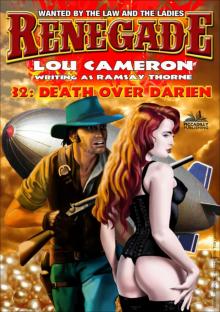 Renegade 32
Renegade 32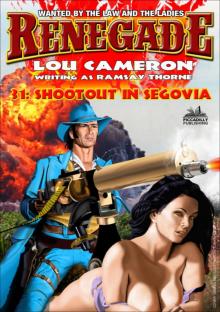 Renegade 31
Renegade 31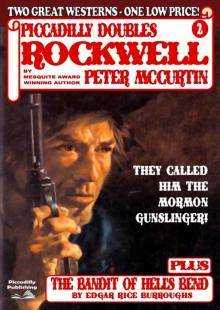 Piccadilly Doubles 2
Piccadilly Doubles 2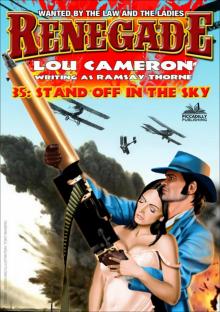 Renegade 35
Renegade 35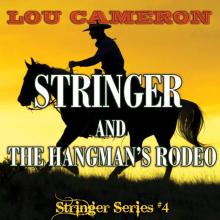 Stringer and the Hangman's Rodeo
Stringer and the Hangman's Rodeo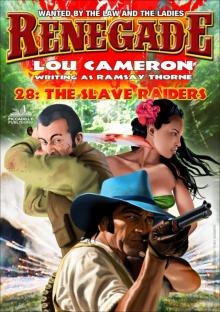 Renegade 28
Renegade 28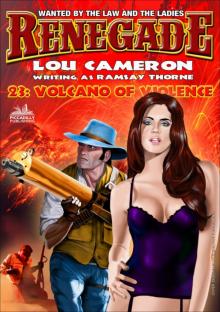 Renegade 23
Renegade 23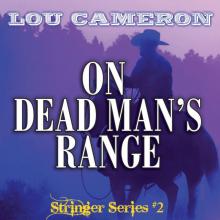 On Dead Man's Range
On Dead Man's Range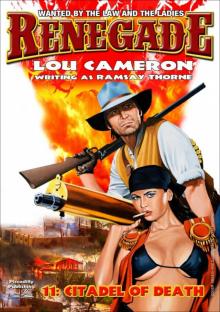 Citadel of Death (A Captain Gringo Western Book 11)
Citadel of Death (A Captain Gringo Western Book 11)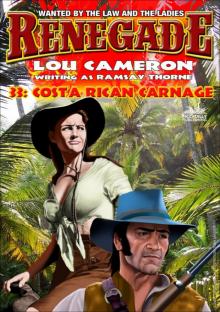 Renegade 33
Renegade 33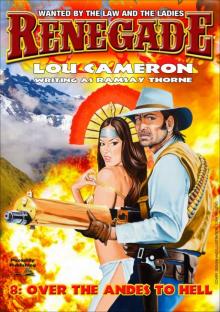 Over the Andes to Hell (A Captain Gringo Western Book 8)
Over the Andes to Hell (A Captain Gringo Western Book 8)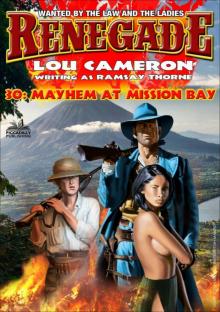 Renegade 30
Renegade 30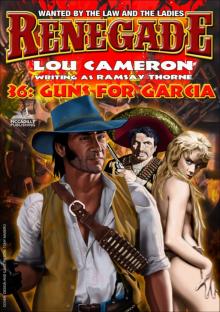 Renegade 36
Renegade 36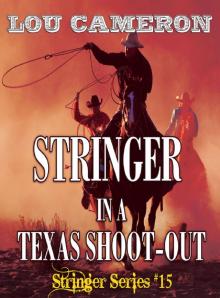 Stringer in a Texas Shoot-Out
Stringer in a Texas Shoot-Out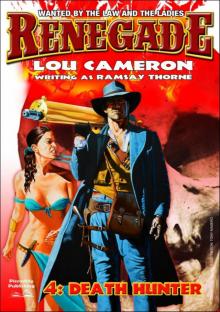 The Death Hunter
The Death Hunter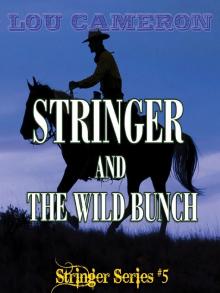 Stringer and the Wild Bunch
Stringer and the Wild Bunch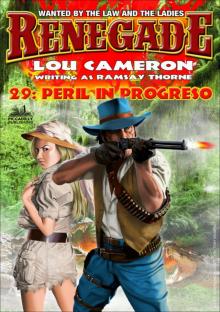 Renegade 29
Renegade 29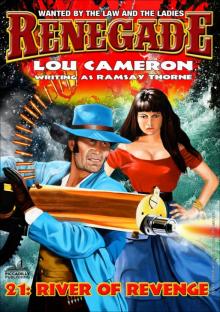 Renegade 21
Renegade 21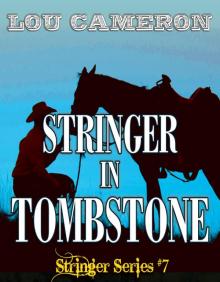 Stringer in Tombstone
Stringer in Tombstone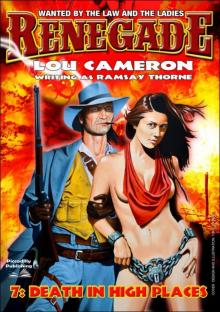 Death in High Places (A Renegade Western Book 7)
Death in High Places (A Renegade Western Book 7)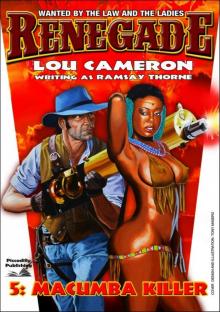 Macumba Killer
Macumba Killer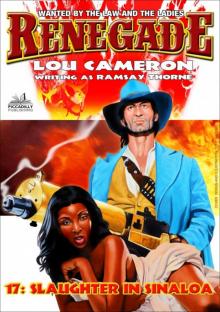 Renegade 17
Renegade 17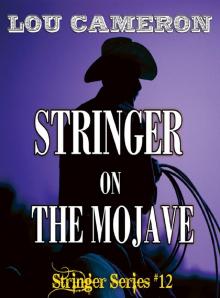 Stringer on the Mojave
Stringer on the Mojave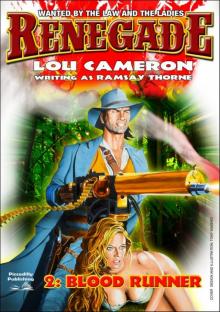 Blood Runner
Blood Runner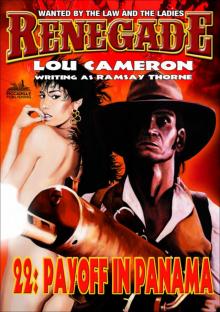 Renegade 22
Renegade 22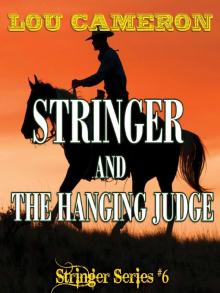 Stringer and the Hanging Judge
Stringer and the Hanging Judge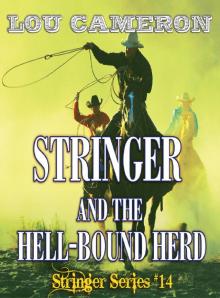 Stringer and the Hell-Bound Herd
Stringer and the Hell-Bound Herd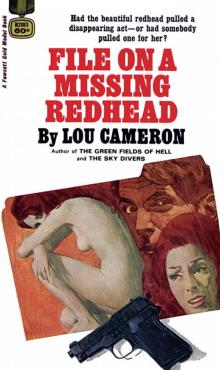 File on a Missing Redhead
File on a Missing Redhead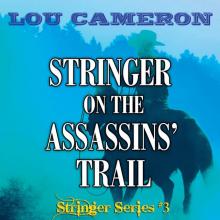 Stringer on the Assassins' Trail
Stringer on the Assassins' Trail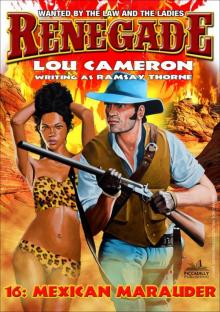 Mexican Marauder (A Captain Gringo Adventure #16)
Mexican Marauder (A Captain Gringo Adventure #16)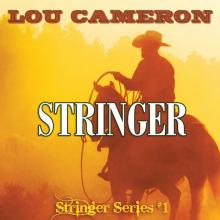 Stringer
Stringer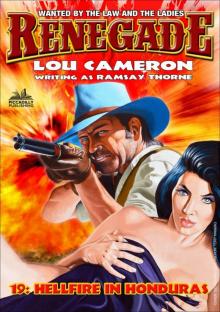 Renegade 19
Renegade 19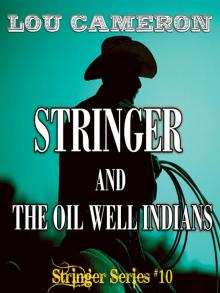 Stringer and the Oil Well Indians
Stringer and the Oil Well Indians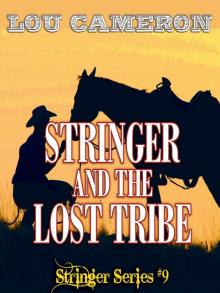 Stringer and the Lost Tribe
Stringer and the Lost Tribe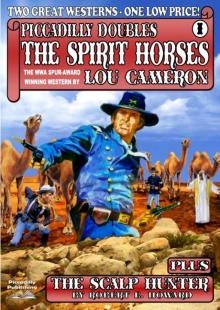 Piccadilly Doubles 1
Piccadilly Doubles 1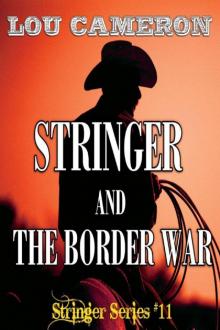 Stringer and the Border War
Stringer and the Border War Renegade
Renegade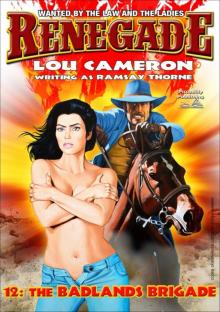 The Badlands Brigade (A Captain Gringo Adventure Book 12)
The Badlands Brigade (A Captain Gringo Adventure Book 12)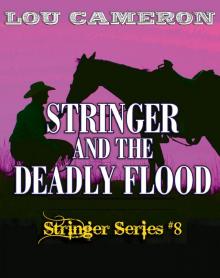 Stringer and the Deadly Flood
Stringer and the Deadly Flood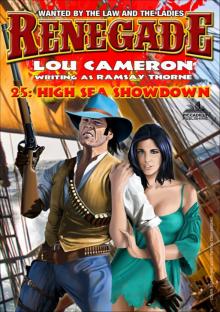 Renegade 25
Renegade 25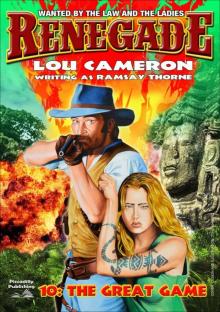 The Great Game (A Captain Gringo Western Book 10)
The Great Game (A Captain Gringo Western Book 10)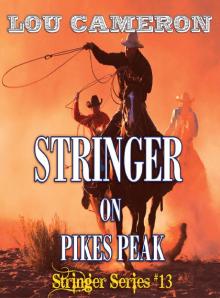 Stringer on Pikes Peak
Stringer on Pikes Peak